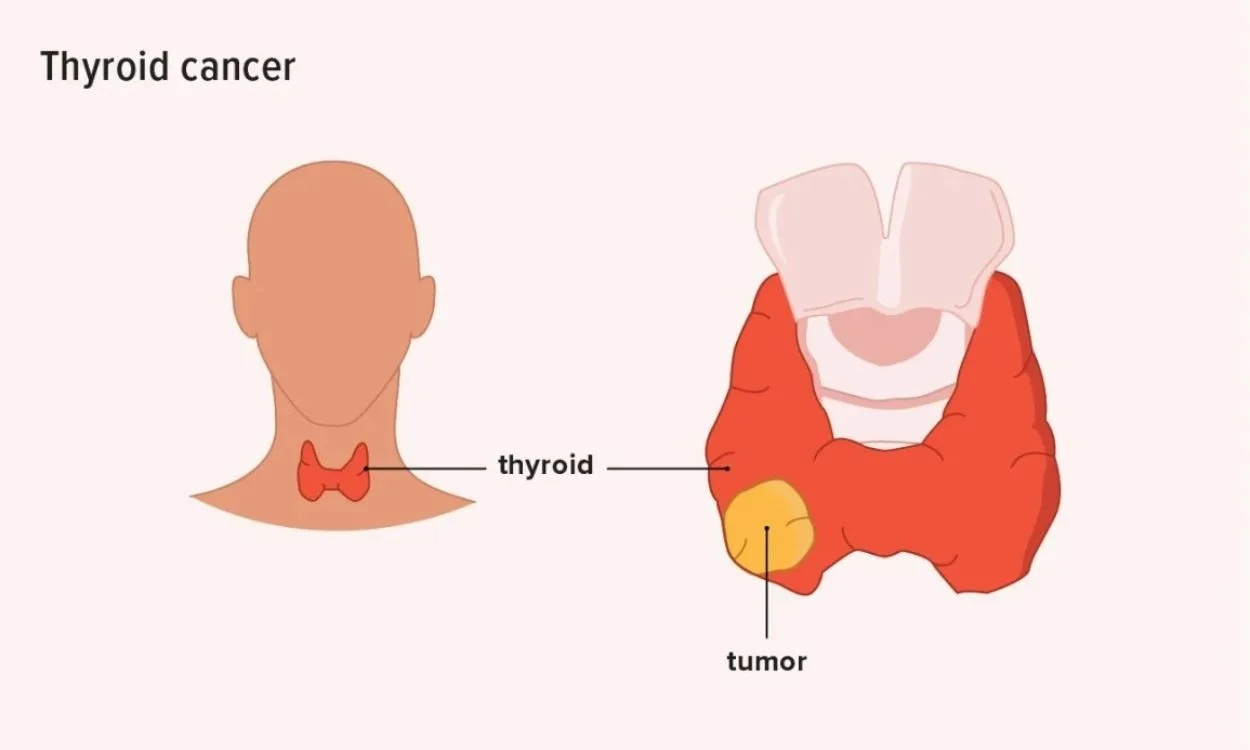Are Thyroid Nodules Usually Cancerous?
Thyroid nodules are growths or lumps that form within the thyroid gland, which is located in the neck. These nodules are a relatively common occurrence, with studies suggesting that up to 50% of people may have thyroid nodules detected through ultrasound imaging. However, the majority of thyroid nodules are benign, meaning they are not cancerous. In this article, we will explore the nature of thyroid nodules and their likelihood of being cancerous.
Understanding Thyroid Nodules
Thyroid nodules can vary in size and may be solid or fluid-filled. They are more common in females and become more prevalent with age. While the exact cause of thyroid nodules is often unknown, certain risk factors such as a family history of thyroid nodules or thyroid cancer, iodine deficiency, and radiation exposure may increase the likelihood of developing nodules.
Differentiating Between Benign and Cancerous Nodules
While thyroid nodules are predominantly benign, it is important to evaluate them thoroughly to identify any potential malignancy. The following factors are considered when determining the likelihood of a nodule being cancerous:
- Size: Larger nodules are generally more concerning, with those greater than 1 centimeter in diameter warranting further investigation.
- Composition: Solid nodules are more likely to be cancerous compared to fluid-filled (cystic) nodules.
- Rapid growth: Nodules that exhibit significant growth over a short period may raise suspicion of malignancy.
- Age: Thyroid nodules in individuals under the age of 20 or over the age of 60 have a slightly higher likelihood of being cancerous.
- Family history: A family history of thyroid cancer or certain genetic conditions may increase the risk of cancerous nodules.
Diagnostic Tests for Thyroid Nodules
To evaluate thyroid nodules and determine their nature, several diagnostic tests may be conducted. These tests include:
- Ultrasound: An ultrasound provides valuable information about the size, composition, and characteristics of the nodules.
- Fine-needle aspiration (FNA) biopsy: This procedure involves using a thin needle to extract a sample of cells from the nodule for examination under a microscope. An FNA biopsy is the most accurate method for distinguishing between benign and cancerous nodules.
- Blood tests: Blood tests may be conducted to check thyroid hormone levels and assess thyroid function.
- Radioactive iodine scan: This scan helps determine whether a nodule is actively taking up iodine, which can provide additional information about its behavior.
Treatment Options for Thyroid Nodules
The treatment of thyroid nodules depends on their size, characteristics, and the presence of cancer. Benign nodules may not require treatment and can be monitored over time through regular check-ups. However, if a nodule is cancerous or causing symptoms such as difficulty swallowing or breathing, treatment options may include:
- Thyroidectomy: Surgical removal of all or part of the thyroid gland.
- Radioactive iodine therapy: This treatment involves taking radioactive iodine orally, which is then absorbed by the thyroid tissue and helps destroy cancerous cells.
- Thyroid hormone suppression: Taking synthetic thyroid hormone medication can help reduce the size of nodules and prevent the growth of new ones.
The Fitpaa App – Your Partner in Health and Fitness
While thyroid nodules are typically not cancerous, it is essential to prioritize your overall health and well-being. Fitpaa, India’s leading health and fitness app, is here to support you in achieving your health and fitness goals.
With Fitpaa, you get a personalized health and fitness team, including a fitness planner, fitness coach, nutritionist, and doctor, who will guide you through a scientifically designed fitness plan. The Fitpaa Capsule, created based on your specific goal, lifestyle, and health condition, provides you with a sustainable diet plan, workout regimen, and recovery plan.
The Fitpaa app helps you track your progress, provides video and voice-assisted workout sessions, and offers a precision diet tracker to monitor your food intake. Your fitness planner will be there with you every step of the way, providing unlimited consultations, daily follow-ups, and weekly reviews to keep you motivated and on track.
To experience the transformative power of Fitpaa, download the app today and take control of your health and fitness journey. Together, let’s make your dream life a reality.









